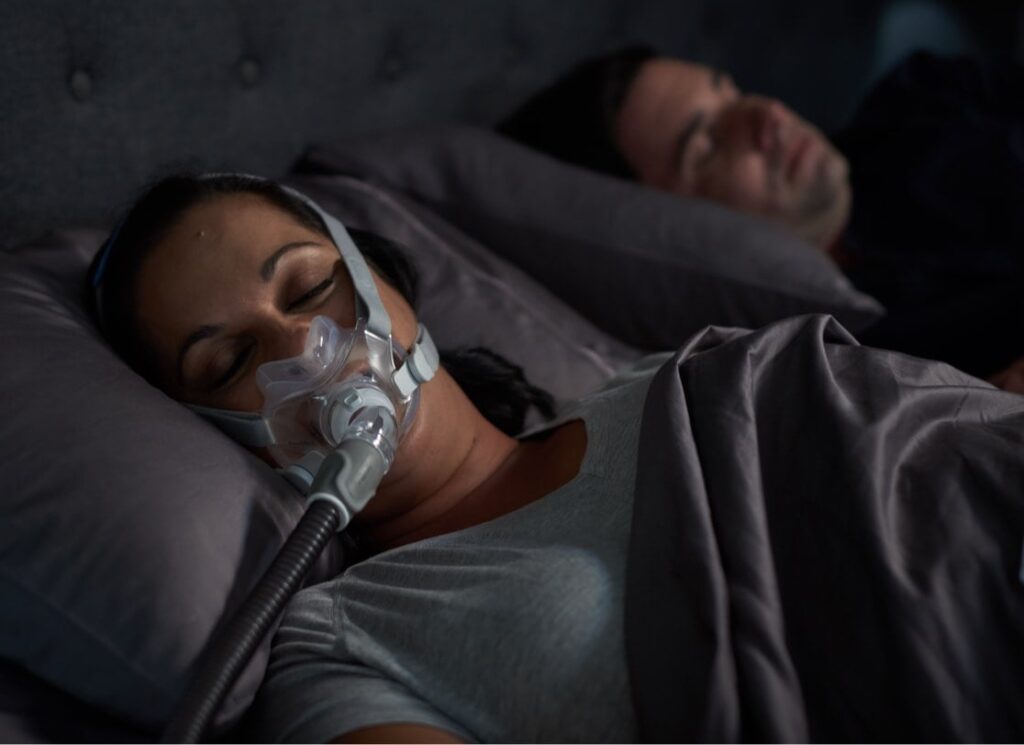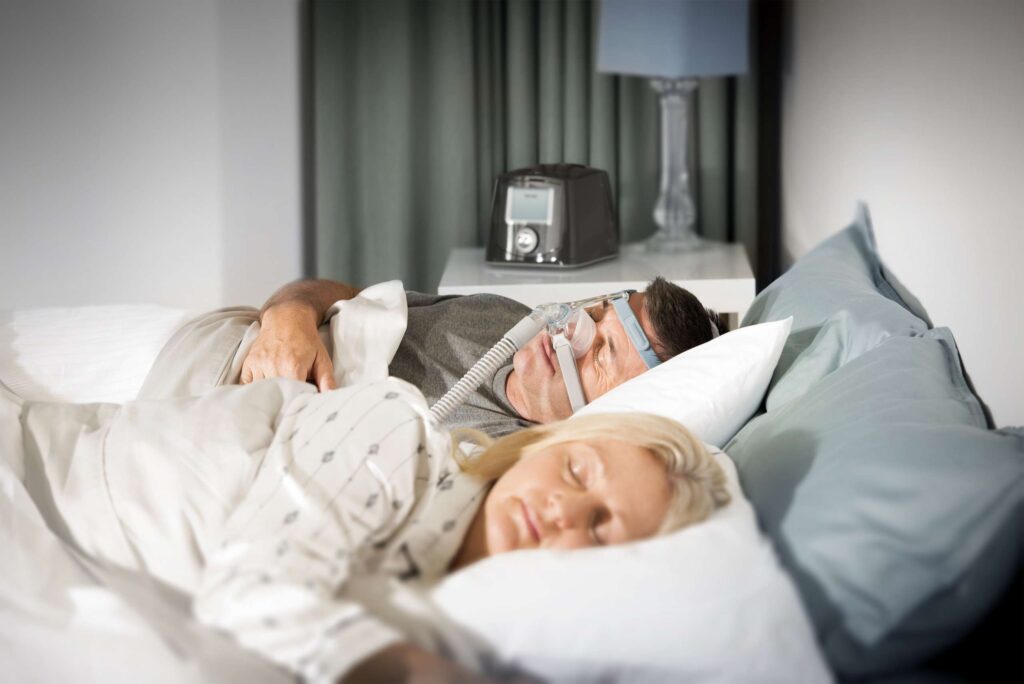Introduction: When Your Sleep Steals Your Clarity
Sleep apnea is more than just loud snoring or waking up tired. It’s a sleep disorder in which breathing stops and starts repeatedly during the night, robbing your body — and more importantly, your brain — of oxygen and deep rest.
When left untreated, sleep apnea doesn’t just leave you groggy. It can gradually affect how your brain functions, weakening memory, focus, and even emotional balance. Over time, these effects can mimic signs of early aging or dementia, leaving many people puzzled about what’s really going on.
If you’ve been forgetting appointments, losing your train of thought, or feeling mentally “foggy,” sleep apnea might be playing a bigger role than you think.
Causes of Sleep Apnea: Why It Happens in the First Place
Sleep apnea comes in different forms, but the two main types share one thing in common — they interrupt your breathing and oxygen flow while you sleep.
See more: Home Oxygen Supply Options: Machines, Tanks, and Medical Accessories
1. Obstructive Sleep Apnea (OSA)
This is the most common type, caused by the muscles in your throat relaxing too much. When that happens, the airway narrows or closes, blocking airflow.
Common risk factors include:
- Excess weight — Extra tissue around the neck can press on the airway.
- Anatomy — A naturally narrow throat, large tonsils, or certain jaw shapes make it easier for the airway to collapse.
- Age — As we age, muscle tone in the airway decreases.
- Sleep position — Sleeping on your back can cause the tongue and soft palate to fall backward.
2. Central Sleep Apnea (CSA)
Less common, CSA occurs when the brain fails to send the correct signals to the breathing muscles. This type is often linked to certain heart problems, neurological conditions, or medications that affect the nervous system.
3. Lifestyle Triggers That Worsen Symptoms
Even if you have a mild form of sleep apnea, certain habits can make it worse:
- Alcohol before bed (relaxes airway muscles)
- Sedative use
- Smoking, which irritates and inflames the airway
- Chronic nasal congestion or untreated allergies
- Poor sleep hygiene, such as inconsistent bedtimes
Symptoms: What to Watch For (Beyond Snoring)
Sleep apnea is often underdiagnosed because the symptoms don’t always seem connected — especially the brain-related ones.

Common Signs
- Loud, frequent snoring
- Pauses in breathing (often noticed by a partner)
- Waking up gasping or choking
- Daytime fatigue, even after a full night’s sleep
- Morning headaches
Subtle or Overlooked Symptoms
- Brain fog — Feeling mentally sluggish or unable to think clearly
- Memory slips — Forgetting names, conversations, or simple tasks
- Mood changes — Irritability, anxiety, or mild depression without clear cause
- Difficulty focusing — Trouble staying on task at work or while driving
- Poor decision-making — Making small mistakes you wouldn’t normally make
Example:
Karen, 52, noticed she was forgetting where she put her keys and struggling to recall words in meetings. She brushed it off as “getting older,” but after her husband pointed out her loud snoring and gasping at night, she had a sleep study. The diagnosis? Moderate obstructive sleep apnea. After starting treatment, her memory improved within weeks.
How Untreated Sleep Apnea Harms the Brain
1. Oxygen Deprivation
When breathing stops, oxygen levels in the blood drop. The brain depends on steady oxygen to function properly, and repeated dips throughout the night can damage brain cells over time.
2. Poor Sleep Quality
Sleep apnea repeatedly wakes you up — sometimes without you realizing it — preventing you from reaching the deep stages of sleep where memory consolidation and learning occur.
3. Structural Brain Changes
Research shows untreated sleep apnea can lead to shrinkage in certain brain areas, including the hippocampus, which is vital for memory and learning.
4. Increased Risk of Cognitive Decline
Studies have linked untreated sleep apnea to higher risks of dementia and Alzheimer’s disease, likely due to the combination of oxygen loss, inflammation, and disrupted sleep cycles.
Treatment Options: Protecting Your Brain and Restoring Clarity
The good news is that treating sleep apnea can help restore brain function, improve memory, and prevent further decline.
1. CPAP Therapy
Continuous Positive Airway Pressure (CPAP) machines keep your airway open by delivering a constant stream of air through a mask.
Pros:
- Highly effective for both mild and severe cases
- Works immediately to prevent breathing interruptions
Cons:
- Some people find the mask uncomfortable at first
- Requires nightly use for full benefits
2. Oral Appliances
Custom-fitted dental devices can reposition the jaw or tongue to keep the airway open. They are especially useful for mild to moderate OSA and for people who can’t tolerate CPAP.
3. Weight Loss
If excess weight is contributing to airway narrowing, losing even 5–10% of body weight can reduce or eliminate symptoms.
4. Positional Therapy
Some people’s apnea worsens when sleeping on their back. Special pillows or wearable devices can encourage side-sleeping, reducing airway collapse.
5. Lifestyle Changes
- Avoid alcohol and sedatives before bed
- Keep a consistent sleep schedule
- Treat nasal allergies and congestion
- Quit smoking to reduce airway inflammation
6. Surgery
For structural problems like enlarged tonsils, nasal blockages, or severe jaw misalignment, surgery may be considered when other treatments fail.
Example:
David, 45, had been struggling with constant brain fog and trouble focusing at work. He tried cutting coffee and improving his diet, but nothing changed. A sleep study revealed sleep apnea, and he began using a CPAP machine. Within two weeks, his mental sharpness returned, and his coworkers noticed the difference.
Why Early Treatment Matters for Brain Health
When sleep apnea goes untreated for years, the damage to brain function can be harder to reverse. But when caught early, improvements can happen quickly. People often report:
- Sharper memory
- Better mood stability
- Increased focus and productivity
- Improved learning and problem-solving skills
Think of it like fixing a leak in your roof — the sooner you repair it, the less long-term damage you’ll have to undo.
Conclusion: Give Your Brain the Rest It Deserves
Sleep apnea isn’t just about bad sleep — it’s about the toll it takes on your brain and overall health. Even mild cases can affect your memory, focus, and mental clarity over time.
If you notice symptoms like brain fog, forgetfulness, or constant fatigue, don’t assume it’s just stress or aging. A simple sleep evaluation can uncover whether apnea is to blame, and effective treatments can help you get your sharpness — and your life — back.
Your brain thrives on deep, uninterrupted rest. Protect it now, and you’ll be safeguarding not just your nights, but your future.

